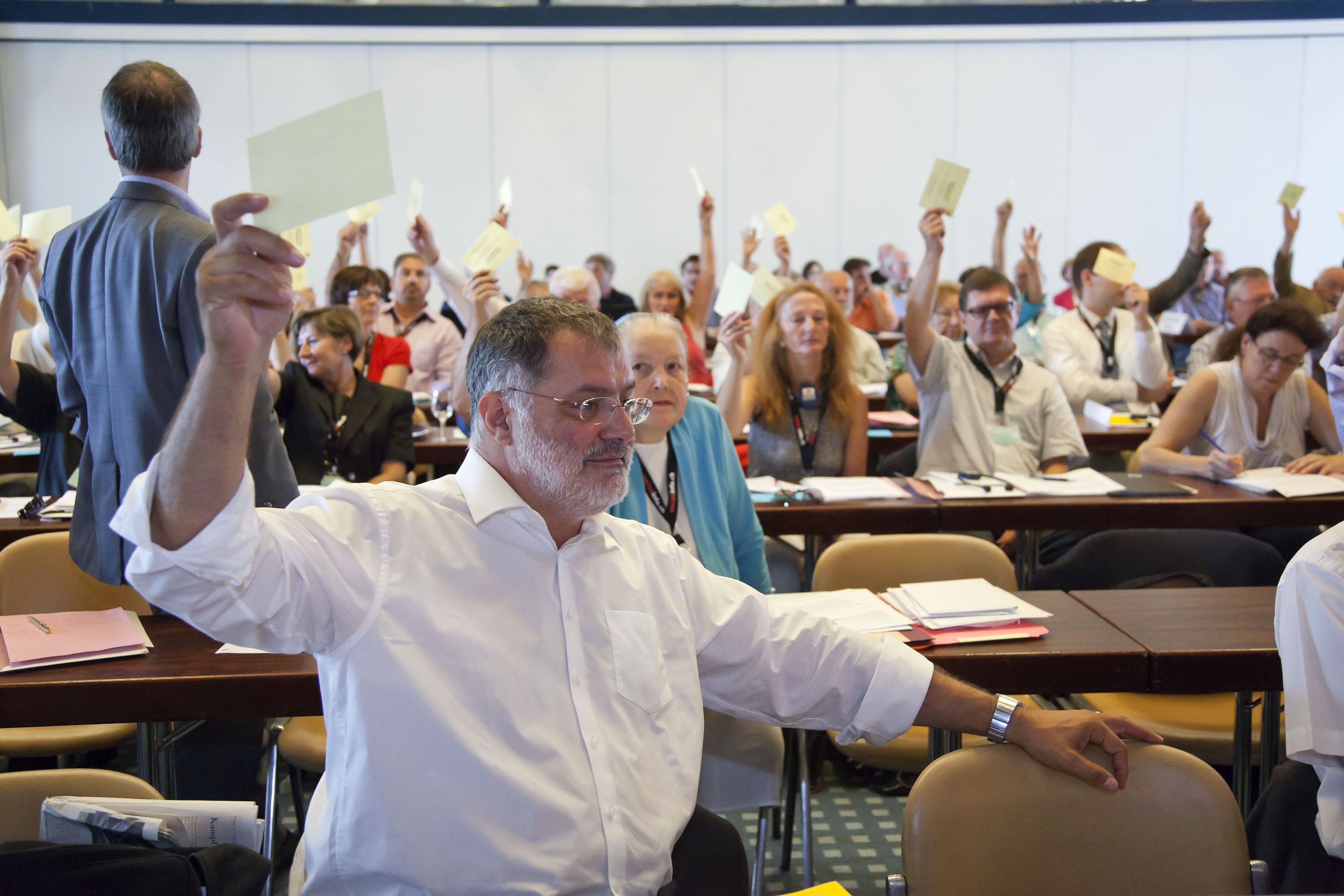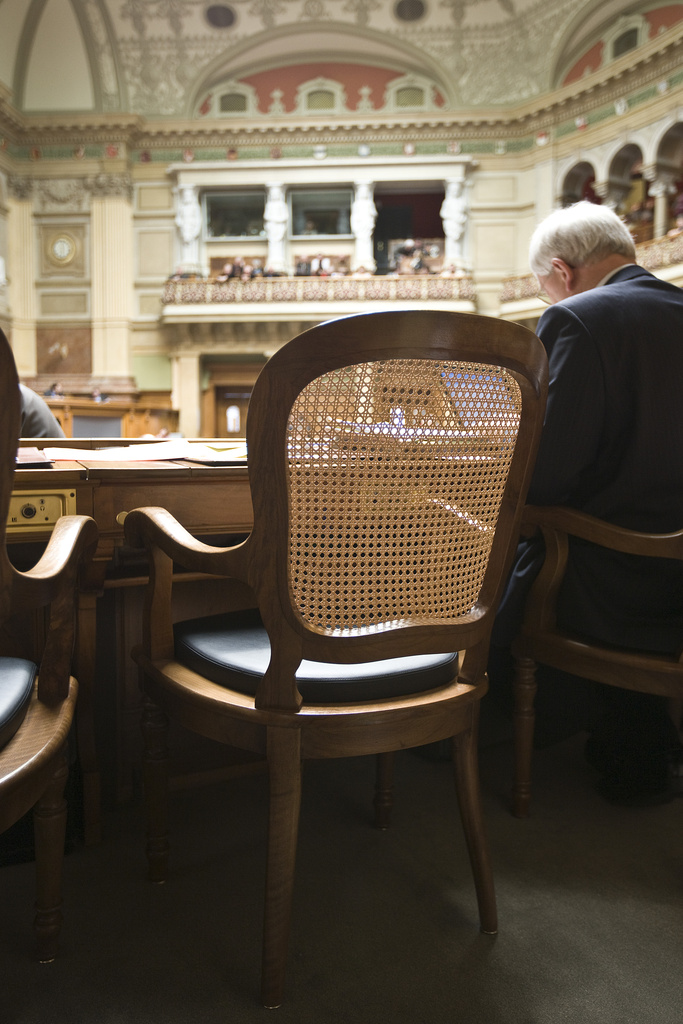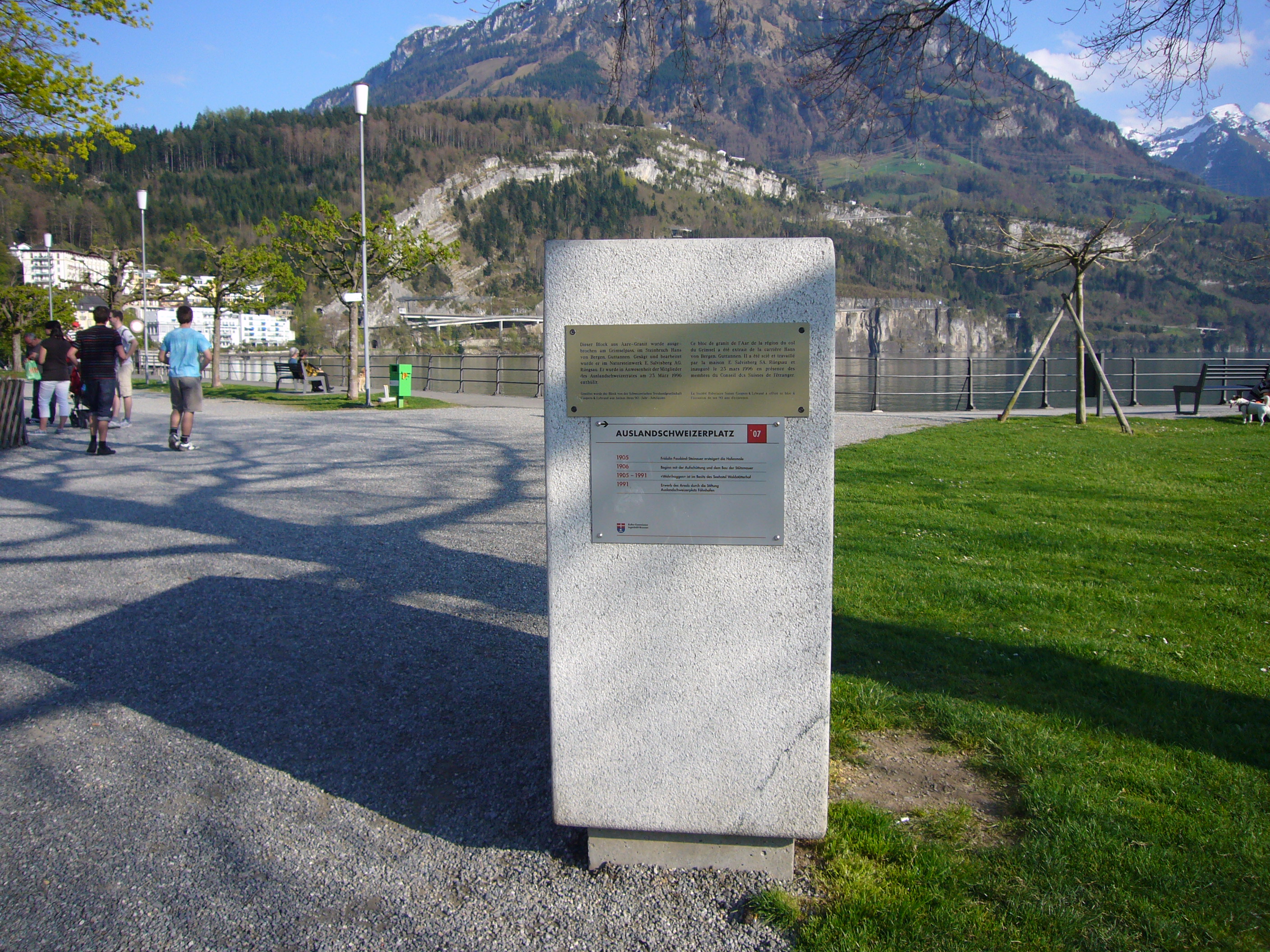Expatriates given lessons in direct democracy

Direct democracy was a key topic of this year’s congress of the Organisation of the Swiss Abroad (OSA), as the expat community awaits October’s parliamentary elections.
In her address to delegates on Saturday, Transport Minister Doris Leuthard stressed that in times of crisis it was crucial for citizens to be able to participate directly in politics.
She assured the audience of several hundred delegates in Lugano that the government was well aware of the important role of the expatriate community as ambassadors for the country and their role in promoting Swiss values.
Appealing for courage and a clear head in tackling the political challenges, Leuthard said: “We can only weather the storm together.”
She said expatriates could benefit from the use of new technology and government services, including online offers and helplines, to take part in the political life in Switzerland and keep in touch with their homeland.
She said she was pleased to hear that the Council of the Swiss Abroad on Friday approved a resolution calling for the extension of the key labour accord with the European Union.
Perhaps surprisingly, Leuthard did not broach the congress theme of direct democracy explicitly but focused on the global economic woes, the impact of the strong Swiss franc on the country’s export and tourism industry and the government’s proposed SFr2 billion ($2.5 billion) economic stimulus package.
Stability
Former government spokesman Achille Casanova made a passionate plea for voters’ participation in ballots, consensus and federalism as pillars of the political system for Switzerland.
He dismissed claims by critics that direct democratic institutions such as initiatives and referendums were obstacles for an efficient government.
“Direct democracy is a key factor for political stability,” he said.
A panel discussion with four experts on democracy highlighted merits and shortcomings of the system in a historical context and the controversy over the possible reforms.
Social Democratic parliamentarian Andreas Gross argued that direct democracy was not an exclusive Swiss privilege and that the inspiration came from elsewhere.
“The Swiss did not invent direct democracy, but they have probably made the best use of it,” he said
Constitutional court
Werner Gartenmann of the group Campaign for an Independent and Neutral Switzerland argued that direct democracy was incompatible with the European Union.
Historian René Roca explained that forms of direct democracy also exist in Asia, Africa and Latin but they were largely ignored by Western countries.
For law professor Andreas Auer of Zurich University, direct people’s initiatives must not violate human rights but they can possibly limit them. He called for the introduction of a constitutional court.
OSA President Jacques-Simon Eggly wrapped up the discussions and speeches, concluding that direct democracy must respect universal values and must be adapted to face future challenges.
Ahead of the elections on October 23, he called for active participation of citizens in politics. About a quarter of all Swiss abroad have registered to take part in ballots, representing 2.4 per cent of the total potential electorate of about five million citizens above the age of 18.
The Organisation of the Swiss Abroad (OSA) represents expatriates’ interests at home and abroad.
The federal authorities recognise it as official mouthpiece of the expat community worldwide.
The Council of the Swiss Abroad is its governing body and meets twice a year, in spring and in summer, at the time of the annual Congress of the Swiss Abroad.
More than 695,000 Swiss citizens live abroad according to official data from December 2010.
Most of them are registered in neighbouring countries France, Germany and Italy.
There is also an important Swiss community in North America.
Some 135,000 Swiss expats have registered to take part in nationwide votes and in elections in Switzerland.

In compliance with the JTI standards
More: SWI swissinfo.ch certified by the Journalism Trust Initiative















You can find an overview of ongoing debates with our journalists here . Please join us!
If you want to start a conversation about a topic raised in this article or want to report factual errors, email us at english@swissinfo.ch.